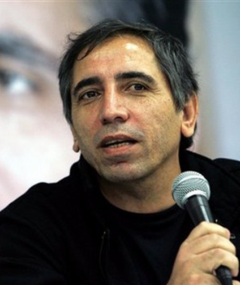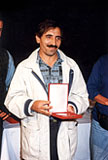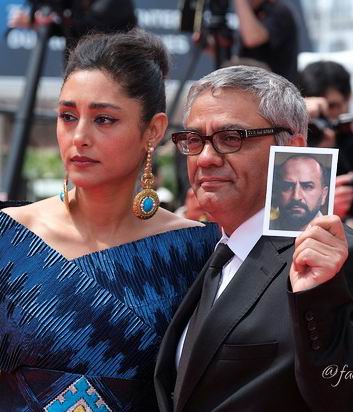|
|
| Welcome to Online Film Home! |
|---|
|
|
|

Makhmalbaf, Mohsen |
Date of birth
29 May 1957, Tehran, Iran
Mohsen Makhmalbaf (May 29th, 1957, Tehran, Iran )
One of the most popular and influential Iranian filmmakers of his era, Mohsen Makhmalbaf was born in Teheran on May 29, 1957.
As a working-class teen, he became involved with a militant terrorist group battling against the Shah’s regime, and at the age of 17, he was sentenced to die after stabbing a policeman.
Ultimately, his youth allowed him to escape the fate of a firing squad, and after serving only five years of his sentence, he was freed in the wake of the country’s 1979 Islamic revolution.
After his release, Makhmalbaf helped establish an artists’ group known as the Islamic Propagation Organization, and he became a prolific writer of plays, essays, short stories, and finally screenplays.
His first filmed script was 1981’s The Explanation, and he directed his first feature, Nassouh’s Repentance, the following year.
Throughout the remainder of the decade, he wrote and directed roughly one film a year, each wildly different in style and content.
“From my films, you can at least learn about Iran, you can get a sense of the history and the society. But no such films have been made about Afghanistan, so you really can't know much about it.”

Among his other early works were 1983’s Two Sightless Eyes, 1984’s Fleeing From Evil to God, and 1985’s Boycott, a fictionalized account of his time in prison.
With 1986’s The Peddler, an autobiographical collection of vignettes exploring the plight of Iran’s urban poor, Makhmalbaf first began attracting international film festival attention. With 1990’s Time of Love and its immediate follow-up,
The Nights of Zayandeh Roud, he also came under the scrutiny of the Iranian government, which promptly banned both features.
Again switching gears, in 1992 he released Once Upon a Time, Cinema, a comic fantasy about the evolution of Iranian filmmaking. While making 1993’s The Actor, a satire of the media in contemporary Iran, his first wife burned to death in a domestic accident (he later married her sister).
The power of the film remained his focus for 1994’s Salaam Cinema, and with 1996’s Gabbeh, he even found U.S. distribution for his work.
Makhmalbaf was also the subject of several documentaries, among them Abbas Kiarostami’s Close-Up and Houshang Golmakani’s Stardust-Stricken, Mohsen Makhmalbaf: A Portrait. —allmovie guide
Selected filmography of
Makhmalbaf, Mohsen
2019
Marghe and Her Mother | Marghe e sua madre (2019)
2012
The Gardener | Baghban (2012)
2006
Scream of the Ants | Faryad-e Mourche ha (2006)
2005
Sex and Philosophy | Sex va Falsafeh (2005)
2002
The Afghan Alphabet | Alefbay-e afghan (2002)
2001
Kandahar | Safar-e Ghandehar (2001)
1999
Kish Tales | Ghessé hayé kish (1999)
1998
The Silence | Sokhout (1998)
1996
The School Blown Away by the Wind | Madresei keh baad bord (Short film, 1996)
1996
A Moment of innocence | Nun va Goldoon (1996)
1996
Gabbeh (1996)
1995
Salaam Cinema (1995)
1993
The Actor | Honarpisheh (1993)
1993
Images from the Qajar Dynasty | Gozideh Tasvir Dar Doran-e Ghajar (1996)
1993
The School Blown Away by the Wind | Madresei keh baad bord (1998)
1992
Once upon a time cinema | Nassereddin Shah, Actor-e Cinema (1992)
1992
Vasle Nikaan | Marriage of the Blessed (1992)
1991
The Night Of Zayandeh-rood | Shabhaye Zayandeh-Rood (1991)
1989
Marriage of the Blessed | Aroosie Khooban (1989)
1987
The Cyclist - Bicycleran (1987)
1987
The Peddler | Dastforoush (1987)
1985
Boycott (1985)
|
|
|
|

Cannes 2024 |
Choose an item to go there!
|
| |
|
|

